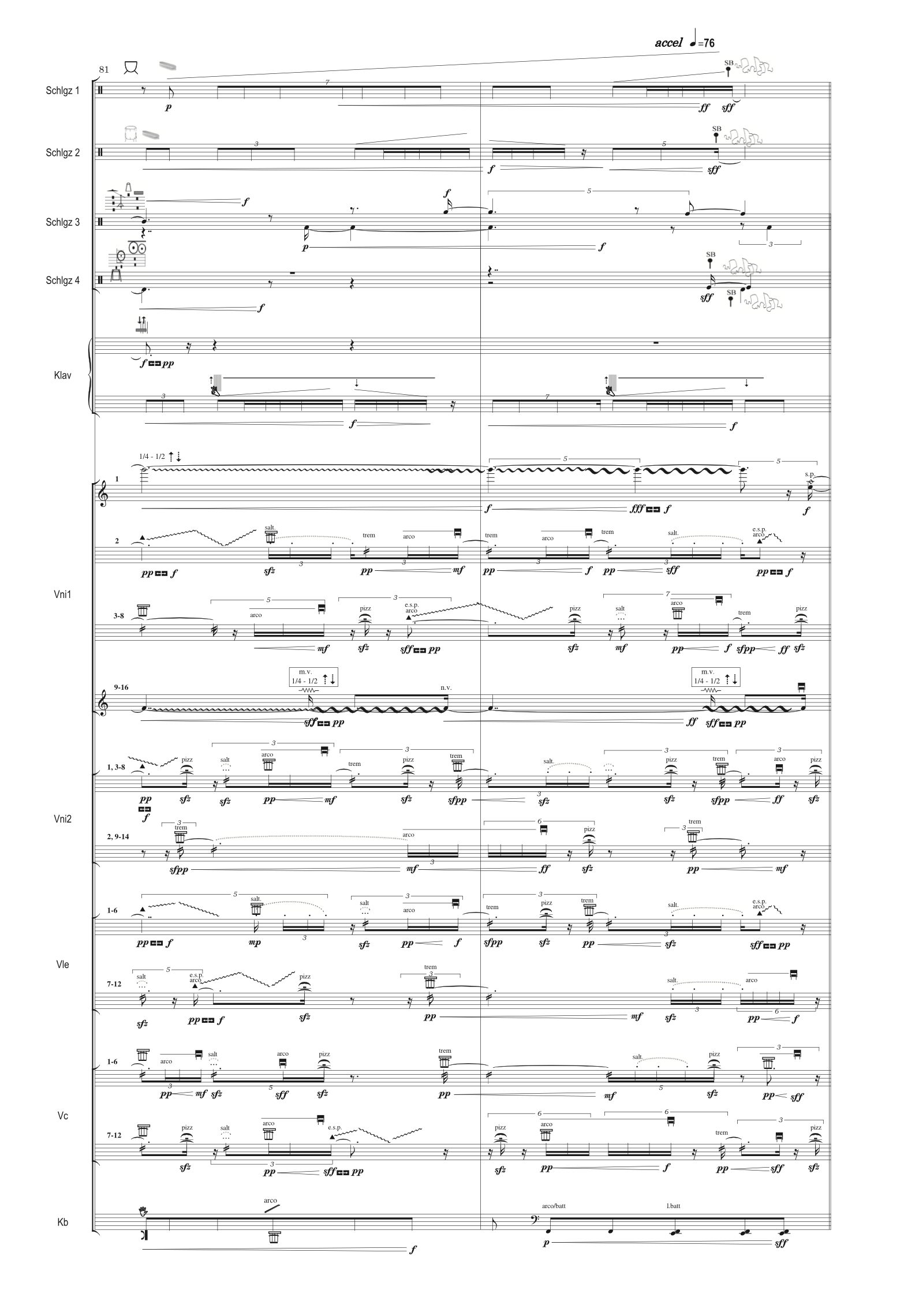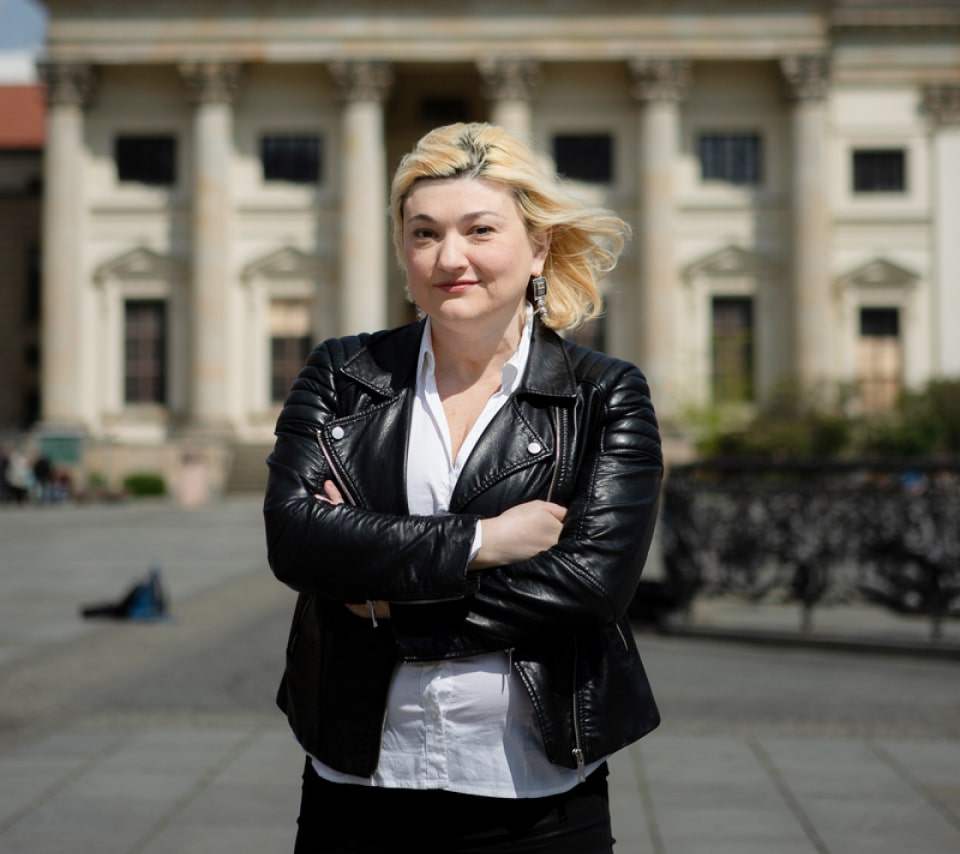Russian Music 2.1 Composition
Memory Code
for symphony orchestra and tape
“Memory Code” is my third, and I think, most complex work for a big orchestra. It was an attempt to document fragments of recollections that our memory has filtered, and embed them as part of both my personal and world history. The orchestral fabric consists of groups and is in dialogue with other musical material – tape which sounds in parallel like a second orchestral layer, blending in with the first layer and forming a complex homogenous timbre-musical theatrical whole. At a certain point the orchestra goes silent, and only the tape utters a noise. Then the timeless immobility of nature and pure sound take centre stage – as in the works by Tarkovsky, who is aesthetically very close to me: through the static aspect and irreversibility of nature you can find your own memory code. In some sense, this programme piece is also related to the 20th century: it is the rumble of the tape which embodies the connection that links us back to the past century — both from a purely musical and socio-cultural aspect. For the time being I will not disclose what exactly is concealed and encoded in the Memory Code — I think that the listener will recognise the micro-quotations in the piece.

Score sample




